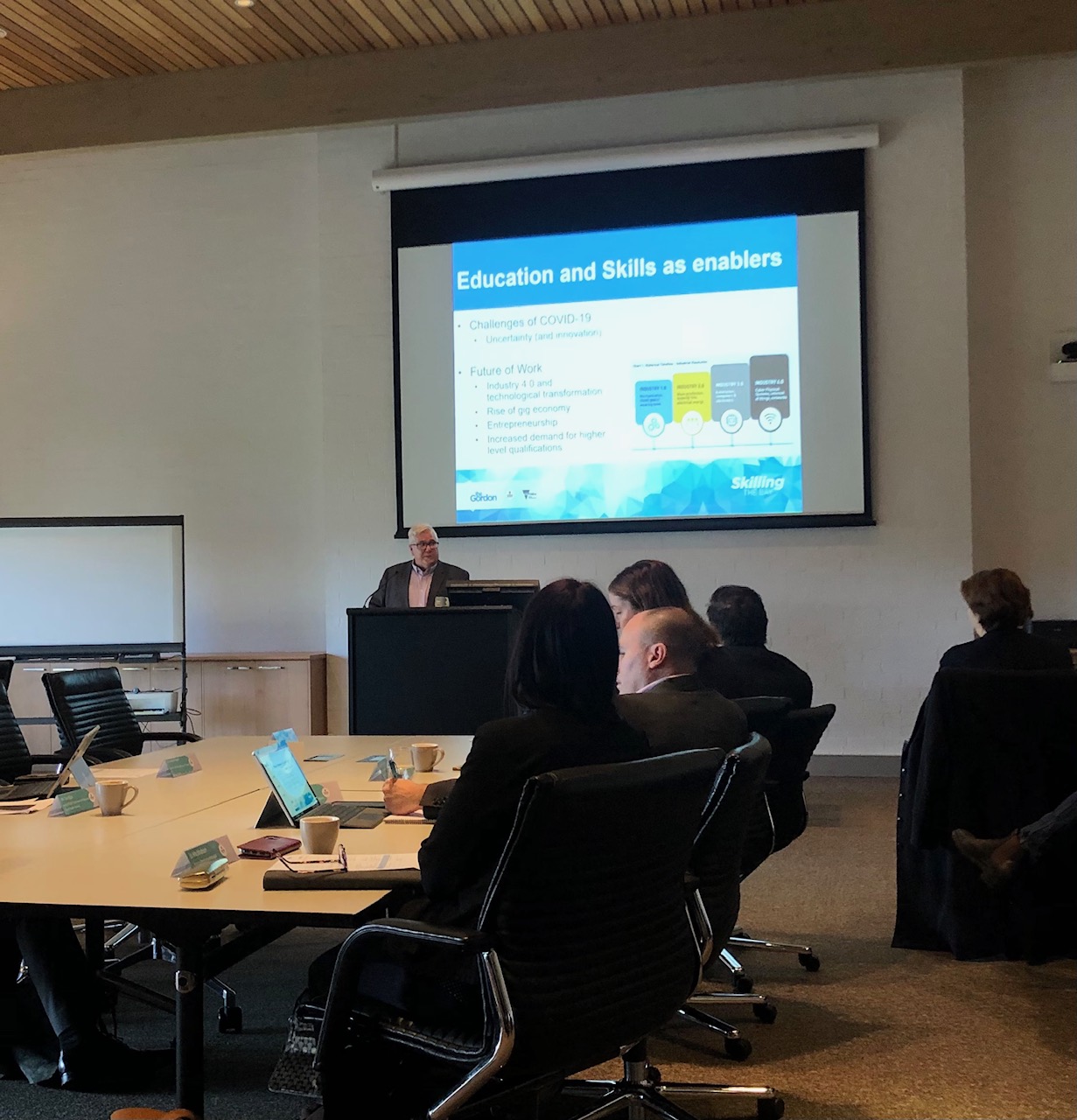Harvest Director, Maree Herath recently had the privilege of attending the Geelong Region’s Skills Strategy workshop hosted by Skilling the Bay in partnership with Victoria State Government, Deakin University and GRLLEN.
The Workshop was represented by over 50 of our region’s leaders in government, industry, education and the community sector with the aim of developing an education and skills response to support our social and economic recovery in the Geelong and Barwon regions.
“It was an insightful workshop” states Maree. The Workshop provided an update on the state of our region from Eco Development Geelong during and emerging from the pandemic from an economic, industry and employment perspective with case studies of industries and their skills challenge. Attendees also gained insights into further project work done by Skilling the Bay in integrating youth into work and the Committee for Geelong who reported on their “Future of Work” forum.
With the aggregation of industry, the session quickly moved to input from attendees.
The State of the Geelong Region – 12 months on from COVID
What was interesting was 12 months on from COVID the vast majority of attendees greatest impact was achieving more flexible work practices – but with that the challenge of returning staff to the office/hybrid environment. And, our region is now growing and growing rapidly – an implication no-one predicted – which now presents a new set of challenges.
Future Concerns
Our region’s employers are most concerned with finding skilled people, workplace culture, building the workforce of the future and the skills divide between skilled and non-skilled workers.
Our educators seek to find meaningful ways to transition youth with the right skills into sustainable employment, skill development to create job ready individuals, transitioning mature workforces, funding as well as linking skills to AQTF and similar frameworks.
Skills Required
The most critical skills (skills now and into the future) attendees highlighted were many soft (employability) skills such as adaptability, leadership, resilience, flexibility, agile working, innovation, enterprising, creative and critical thinking, team building and collaboration. This came alongside more focus on digital literacy and digital problem solving, systems and design thinking, data analytics and using data to inform the skill of the work force.
The Future of Work
Round table discussions looked at the challenges and opportunity we predict around the future of work.
Challenges:
- The digital divide that our digitally enabled economy will present to those in areas of disadvantage.
- A new and more advanced skillset is needed. Do we have it? Are we training it? We will experience an era of skills shortage.
- We have become aware we live in an uncertain world. Can we sustain the pace of change, can we be responsive and how do we disseminate information in a VUCA environment?
- Learning what the purpose of the office is in a remote, flexible, hybrid working model and what will become of our CBD’s?
- Will our leaders continue being human centred, authentic and genuine post-COVID?
- What is the tech and digital literacy required, in addition to core technical skills?
- Where does the break even lie between social benefits and paid physical labour to motivate people to seek employment?
Opportunities:
- Remote working (brings positives and negatives) but eliminates geographic borders and allows for a global economy.
- Because new ways of work were thrust on many, there is an adaptable mindset that has been created out of adversity.
- Organisations are more collaborative, less siloed.
- Rapid integration of systems and roll-out of new services
Diversity & Inclusion
Attendees agreed we can do better in creating an ecosystem that allows for equity for all. Keys to achieving this are:
- Addressing the “why” and why it is important. What can be gained? Innovation? Productivity benefits?
- Ensuring that at the school level we provide a safe and inclusive culture.
- For the individual seeking pathways to education and employment:
- Making jobs and pathways more visible.
- Learning their drivers and motivators and engaging individually with them to assist them achieve their desired outcomes.
- Providing more bridges to allow for experimentation and exposure to the world of work.
- Support via people and programs
For the employer:
- Building a mindset of creativity and inclusion leveraging from the flexibility required in COVID
- Providing support through programs
- Build capacity of organisations to undertake traineeships
The need for industry shaped skill development is a high priority item for Geelong and the Barwon region and the group are now looking at ways to come together to continue to input into a Regional Skills Strategy.
Where to from here?
If you are a key employer in the Geelong region who can input into this discussion, please contact Carley Brennan, Manager, Skilling the Bay at [email protected]

